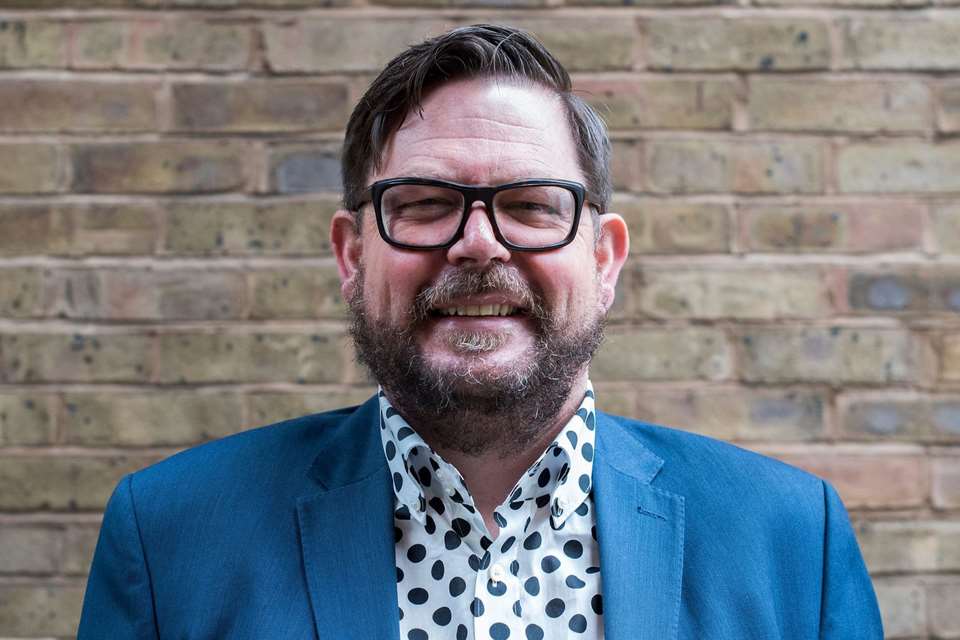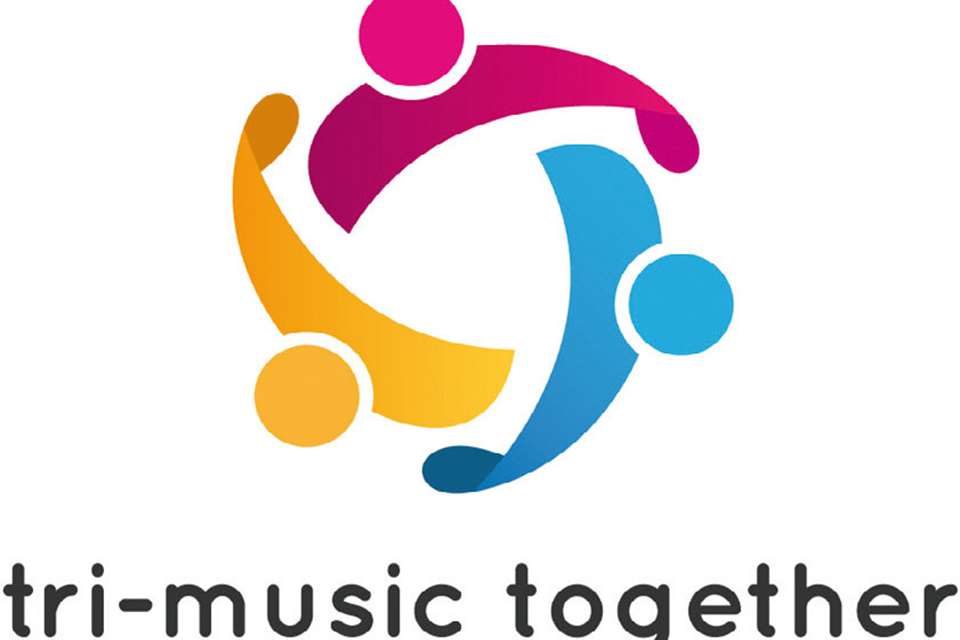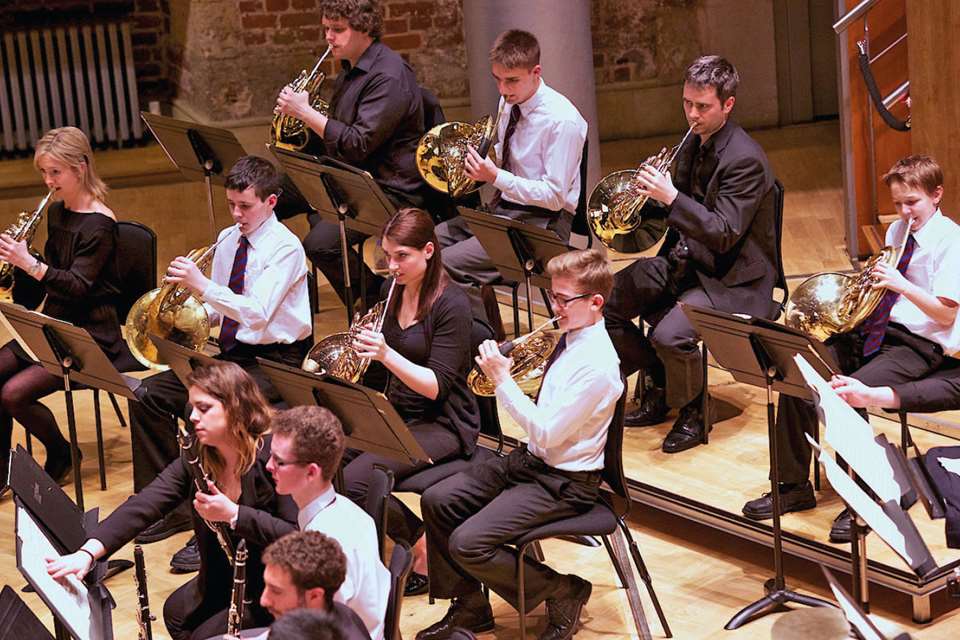Mend the gaps: Effective music hub partnerships
Yogesh Dattani
Tuesday, February 1, 2022
Yogesh Dattani, head of Ealing Music Service and equity, diversity and inclusion lead for Music Mark, describes how effective partnerships have enabled him to close some of the gaps through which far too many young people fall.
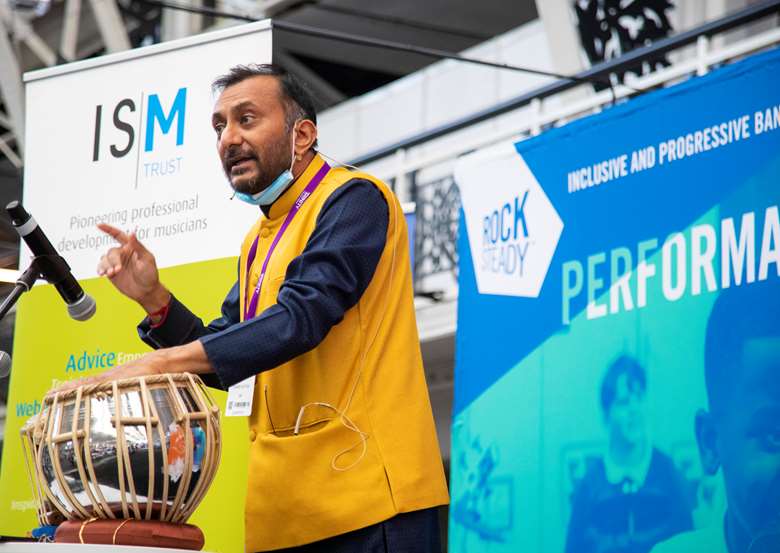
I have never experienced quite the same sense of belonging as my peers seemed to during our music education. Perhaps this was because no other child looked like me in primary school (possibly in the whole of North Wales) following the Ugandan Exodus of 1972; maybe it was the lack of opportunity to learn any musical instrument during my secondary education, let alone the tablā; or that the curriculum during my undergraduate studies and initial teacher training was Western music-centric. I suspect that it was a combination of all of these and other systemic factors, not to mention the overtly racist abuses.
All of these experiences – many of them positive, I hasten to add – have made me passionate about reaching as many children and young people as possible, regardless of their personal circumstances, from their racial backgrounds to financial means or musical tastes.
I believe that the advent of music education hubs is as positive and significant a milestone in the history of music education as the national curriculum for music and whole class ensemble tuition (WCET). Not only did the 2011 National Plan for Music Education set out clear expectations of hubs in the form of four core and three extension activities, it also requires them to collaborate with a range of partners to close the gaps through which far too many children and young people fall, thereby giving them a chance to access the excellent music education they deserve. This article outlines just a few such examples; some that have been operational for many years, others currently being piloted, while others are at a development stage.
Equity of support
Having been refined for over 15 years – and more recently with versions bespoke to primary, secondary and specials schools – the Ealing Music Membership has been a game changer for developing excellent working relationships between the hub and its schools.
For a small annual fee, itself designed to secure school-wide buy-in, music leads choose from a comprehensive menu of goodies to the value of more than £1,000 with which to meet the musical needs of their pupils. These range from on-site workshops and performances and CPD opportunities, to access to the world-leading music teaching and learning platform, Charanga, and membership of Music Mark. For the hub, it's a more equitable way of distributing Department for Education (DfE) music hub funding across a maximum number of schools, whether or not they access the service's instrumental tuition. Requests for the bespoke package of support at the start of the academic year allows the hub to plan for the whole year in advance, ensuring that pupils don't miss out, which is particularly important in schools without a music lead.
Diverse genres
A multi-agency partnership, Indonesia Comes to Ealing is a five-day residency in which upper Key Stage 2 pupils learn to play the Gamelan and learn about Indonesian culture through stories and shadow puppetry. The £1,250 cost is match-funded by the hub, the host school and the Indonesian Embassy. The value addition to the pupil's development in just five days is quite simply remarkable, and only possible when pupils are completely engaged in the learning process. ‘Our children became absorbed in the creative aspects of playing the gamelan and puppet making, and their final performance to proud parents was a confidence-building experience they will never forget,’ says Alison Reed, headteacher at Dairy Meadow Primary in Southall.
First delivered in 2016 – when 250 years prior, Mozart was in London at roughly the age of nine – Mozart250 takes pupils on a journey of discovery as they learn about the music of the child prodigy, compose their own operas and, finally, showcase their own music to friends and family in a grand finale performance. Pupils also undertake a wider exploration of the 18th-century society in which Mozart lived and worked, touching on aspects of history, geography, and arts and crafts, as well as attending a day trip to a London museum.
Having secured over £150,000 over the last few years to deliver Mozart250 in many of Ealing's primary schools, this partnership with local opera company The Mozartists is a partnership at its best. ‘Alongside the clear musical benefits, many teachers have commented that this project helps neurodiverse children – some of whom might find it hard to sit still and focus in a normal classroom setting – to tap into their creativity and flourish,’ says Debbie Coates, CEO of The Mozartists.
North Indian classical music is my passion, and for some time now I've been keen to continue to propagate this beautiful music beyond Ealing's borders. Produced by the ISM Trust and myself, Indian Takeaway is a multi-sensory online resource which enables users to simply take away and successfully teach the fundamentals of Indian classical music on any instrument or voice technique. The resource explores the basics of the melodic (rāg) and rhythmic (tāl) structures of Indian classical music, as learners gradually learn to play or sing a short composition known as Sargam Gāt. ‘This innovative resource is excellent for teachers at all levels who are keen to understand more about how North Indian Classical music can be more meaningfully and authentically embedded within their school's music curriculum,’ says Dr Alison Daubney.
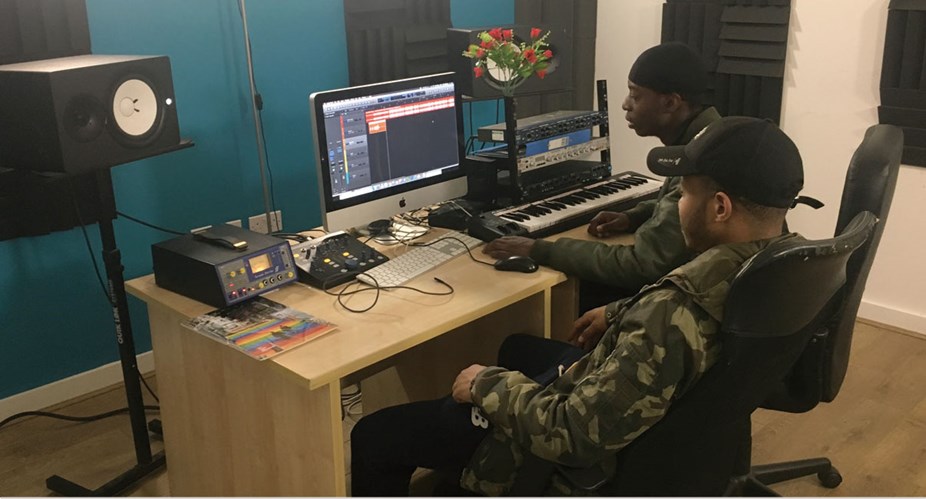
The music studio at Bollo Brook Youth Centre © COURTESY BOLLO BROOK YOUTH CENTRE
Including the excluded
Over the past 10 years, Bollo Brook Youth Centre has built up a local, national and international reputation for delivering high quality programmes for young people who face barriers to accessing music education.
A three-year initiative that will reach young people in challenging circumstances – from asylum seekers to those at risk of offending – Spreading the Sounds will see Bollo Brook and Ealing Music Service (EMS) join forces with nine funding and delivery partners to improve the music making skills of young people facing barriers, increase their readiness for and access to employment in music education and the music industry, and improve organisational practice in overcoming barriers to young people's music education.
Senior youth worker at Ealing Council Colin Brent says: ‘By situating first-class music education in spaces where young people choose to be, we can engage positively with groups that many others struggle to reach. Inclusion is not about just opening doors to predesigned, one-size-fits-all programmes; it is about building trusting relations with communities who are often excluded, so that they know that ownership, mutual support and creative exploration are integral parts of what we offer. By working with EMS and other partners, we hope to expand people's expectations of what can be achieved through music education.’
There's no denying that music has an important role in the health care of children and adults alike. The West Middlesex Hospital's own education programme includes a dedicated Arts Team. The young people may include long-stay patients, or outpatients coming in for regular treatment for conditions/procedures such as blood transfusions or diabetes.
In partnership with the West Mid and another London music hub, Music 4 Health is a pilot project of four fortnightly sessions during Spring 2022 for 12- to 18-year-olds that will be delivered within patient bays and the day room. Colleagues at the West Mid are keen to diversify the musical provision; a particular strength of ours. This project will also allow EMS to expand its range of musical provision to include music in healthcare settings and provide opportunities for staff development in this area.
Perhaps the reason I jumped at the prospect of reaching young people in hospital is because at the age of four – fluent in Kiswahili but without a word of English, having only recently emigrated to the UK – I was hospitalised. In those days, family members were not allowed to stay overnight and the level of stress and anxiety this caused is still vivid.
‘For some children, their engagement with a hospital school is a brief one; for others, it can be a connection that lasts many years. It is critical that being unwell and away from their usual schools does not mean that children miss out on their musical education. This project will support participating music education hubs to build new partnerships with health settings and ensure that barriers to music created by ill health are removed,’ says Hannah Fouracre, director of music education at Arts Council England.
A call to action
We must all strive to deliver an excellent music education to as many children and young people as possible, regardless of their personal circumstances, such as their racial background, financial means or musical tastes – we must do all we can to mend the gaps!
Ealing Music Service ealingmusicservice.com
Ealing Music Membership ealingmusicservice.com/schools/sla/membership
Indonesia Comes to Ealing ealingmusicservice.com/events/indonesia-comes-to-ealing
Mozart250 www.mozartists.com/mozart-250
Indian Takeaway www.ism.org/indian-takeaway
Bollo Brook Youth Centre www.youngealing.co.uk/bollo-brook-youth-centre


